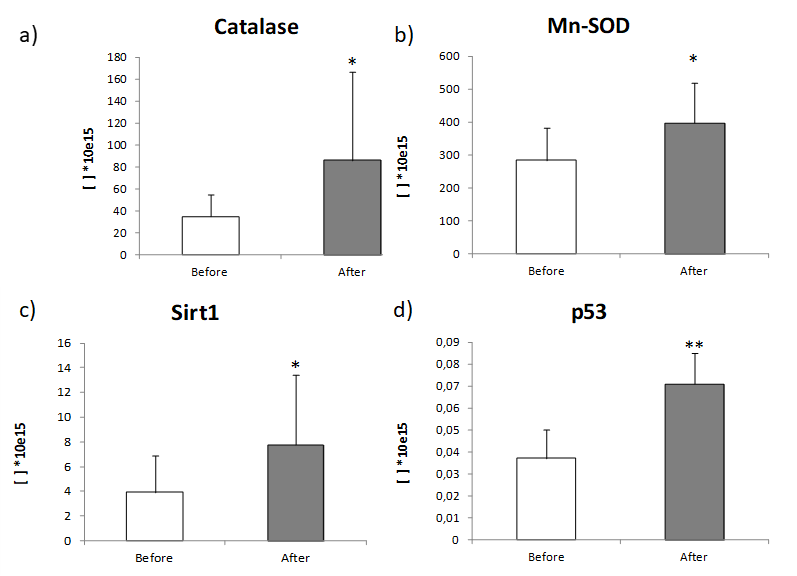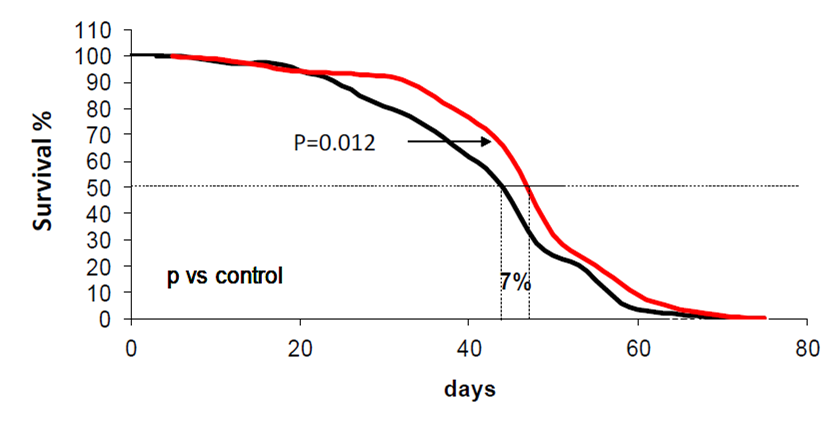by Gambini J, Stromsnes K.
Freshage Research Group, Department of Physiology, Faculty of Medicine, University of Valencia, CIBERFES-ISCIII, INCLIVA, E46010 Valencia, Spain; juan.gambini@uv.es.
Galeno, doctor and philosopher of the roman empire in the 3rd century AD said, “If you cannot cure your illness with wine, resort to medication”. Even though Hippocrates (fifth century AD), known as the father of medicine, recommended moderate wine consumption as part of a healthy diet, the ancient Egyptians already sensed its beneficial properties, which can be seen in “The Odyssey” by Homer, dated to the 8th century1. This means that already at that time it was known that the moderate consumption of wine had beneficial effects on health. Today we know practically all of its composition and which part of these compounds have pharmacological activities, which we will comment in detail later.
These benefits have been shown in modern biochemical studies2, but in 1992 the epidemiological findings of S. Bernaud coined the term “French paradox”. Their studies were based on observing the mortality risk in Europe, thereby finding that Nordic countries have higher mortality rates from cardiovascular diseases than the countries in the south. By studying dietary habits, they observed that the Nordic population had a higher consumption of saturated fats compared to that in the South. This brought them to the conclusion that the consumption of these types of fats elevated the risk of dying from cardiovascular diseases. However, a zone in the center of Europe, specifically France, did not follow the expected pattern. Even though their consumption of saturated fats was similar to that in the North, the mortality from these pathologies were similar to that in the south. When studying the dietary habits in France, they observed that the overall alcohol intake was similar to Northern countries, except wine was the primary source, compared to in the North where the primary alcoholic consumption was in form of beer and distilled spirits3. However, they could not scientifically verify that red wine was responsible for the observed benefits, and therefore proposed the term “The French Paradox” in an attempt to explain the low rates of cardiovascular disease despite following a diet rich in saturated fats.
The health benefits of a moderate consumption of red wine have been studied for decades, first in observational studies, and recently in experimental settings and randomized controlled studies. Cardiovascular beneficial effects have been observed in humans after the ingestion of 400 mL of wine a day for four weeks, due to a significant increase in high density lipoprotein (HDL) levels, which create healthy fats. These effects however were not found after the consumption of white wine4. Additionally, a moderate consumption of red wine exerts beneficial effects on endothelial function, dyslipidemia, hypertension, and metabolic diseases due to its antioxidant properties5.
An interesting systematic review and meta-analysis about the impact of the polyphenols present in red wine on vascular health was recently published by Samuel R. Weaver et al. They concluded that red wine and its components have the potential to improve vascular health in those with high risk of diseases related to the systolic arterial pressure, although these benefits are not as clearly observed in animal models6. These studies could, at least partially, explain the French paradox.
In the department of Physiology of the University of Valencia we set out to study the effects of red wine on longevity and its associated genes in human populations and Drosophila flies, in controlled conditions.
One of the challenges of studying nutritional interventions in humans is finding a homogeneous population. Perhaps the only populations that could be strictly controlled are monks and nuns living in the same environment, following the same routines and controlled diets. Therefore, we chose nuns in monasteries of two convents in the Valencian Community in two different periods, to study the effects of moderate consumption of red wine. Additionally, to study the effects on longevity, as this is not possible in humans, we chose D. melanogaster, a well-established model for genetic and nutritional manipulation studies.
Our discoveries show that the consumption of two glasses of 200 mL of red wine, one during lunch and another with dinner for two weeks, resulted in a significant increase in the expression of genes implicated in longevity in immune cells (Figure 1.). In the D. melanogaster studies we observed an increment of longevity by 12% in the flies that had consumed red wine mixed with their food, in moderate amounts, throughout their lives7.

The fact that high doses of red wine, or any type of alcoholic drink, is prejudicial to health is well established. However, there is a lot of controversy about the recommended healthy doses. Recent evidence indicate that the optimal quantity of red wine lies between one and two glasses per day8. Certainly, higher doses cause prejudicial effects, and it is likely that the beneficial effects decline with lower doses. Substances acting through hormonal effects typically follow a J form (Figure 2), where low concentrations can have beneficial effects compared both to non-consumption and high consumptions9.

In fact, our study showed that the doses of wine administered of two cups of wine during a period of two weeks, did not cause any toxic effect, verified by clinical checks and biochemical blood analysis. Therefore, at least in our study, we can dismiss any potential toxic effect of two glasses of wine per day in this period. It is important to bear in mind that the nuns participating in this study had not consumed red wine in a two-year period prior to the study.
Although we performed this study on a well-controlled population, in individuals with similar nutritional, social and personal lifestyles, the number of nuns participating in this study is quite low. Other studies with a higher number of participants would likely generate more significant results. Additionally, the nuns themselves controlled the consumption of wine, and no white wine or dealcoholized wine was employed in the study as reference controls.
The main conclusions of our study is that the moderate consumption of wine augments the expression of the key genes associated with longevity, such as p53, sirtuin-1, catalase, and superoxide dismutase in humans. Furthermore, it significantly augments the expression of genes associated with longevity, as well as the life span of flies, which shows that the effects apply to the entire animal kingdom. Lastly, no unwanted secondary effects were observed.

Juan Gambini. I obtained by Bachelor´s Degree of Pharmacy from the University of Valencia 2001. In 2003 I obtained a national predoctoral fellowship. I have made three stays in foreign research centers: 2 in Dallas (USA), at the SMU University, and another one in Dusseldorf (Germany) at Heinrich-Heine-Universität Düsseldorf. In 2007 I got my Ph.D. from the University of Valencia with a Cum Laude qualification with mention of European doctorate and in 2009 I was awarded the Extraordinary Doctorate Award in the area of Medicine and I was granted a position as Professor in the Department of Physiology of the School of Medicine. During this time, I have directed 9 Doctoral Thesis, all of which were granted outstanding Cum Laude. To this day, I have published more than 60 research articles resulting in an H index = 29 and around 2900 citations. I am currently developing research in the field of nutrition, healthy aging and longevity.
References
- Jacques Jouanna, B., by Neil Allies, T. & van der Eijk, P. Greek Medicine from Hippocrates to Galen : Selected Papers. (Brill, 2012).
- Patay, R. & Danon, G. [On some biological changes produced, in the swine, by the daily consumption of red wine]. Bull Acad Natl Med 146, 62–65 (1962).
- Renaud, S. & de Lorgeril, M. Wine, alcohol, platelets, and the French paradox for coronary heart disease. Lancet 339, 1523–1526 (1992).
- Lavy, A. et al. Effect of dietary supplementation of red or white wine on human blood chemistry, hematology and coagulation: favorable effect of red wine on plasma high-density lipoprotein. Ann Nutr Metab 38, 287–294 (1994).
- Gorelik, S., Ligumsky, M., Kohen, R. & Kanner, J. A novel function of red wine polyphenols in humans: prevention of absorption of cytotoxic lipid peroxidation products. FASEB J 22, 41–46 (2008).
- Weaver, S. R., Rendeiro, C., McGettrick, H. M., Philp, A. & Lucas, S. J. E. Fine wine or sour grapes? A systematic review and meta-analysis of the impact of red wine polyphenols on vascular health. Eur J Nutr 60, 1–28 (2021).
- Gambini, J. et al. Moderate Red Wine Consumption Increases the Expression of Longevity-Associated Genes in Controlled Human Populations and Extends Lifespan in Drosophila melanogaster. Antioxidants 10, 301 (2021).
- Kloner, R. A. & Rezkalla, S. H. To drink or not to drink? That is the question. Circulation 116, 1306–1317 (2007).
- Calabrese, V., Cornelius, C., Dinkova-Kostova, A. T., Calabrese, E. J. & Mattson, M. P. Cellular Stress Responses, The Hormesis Paradigm, and Vitagenes: Novel Targets for Therapeutic Intervention in Neurodegenerative Disorders. Antioxid Redox Signal 13, 1763–1811 (2010).

